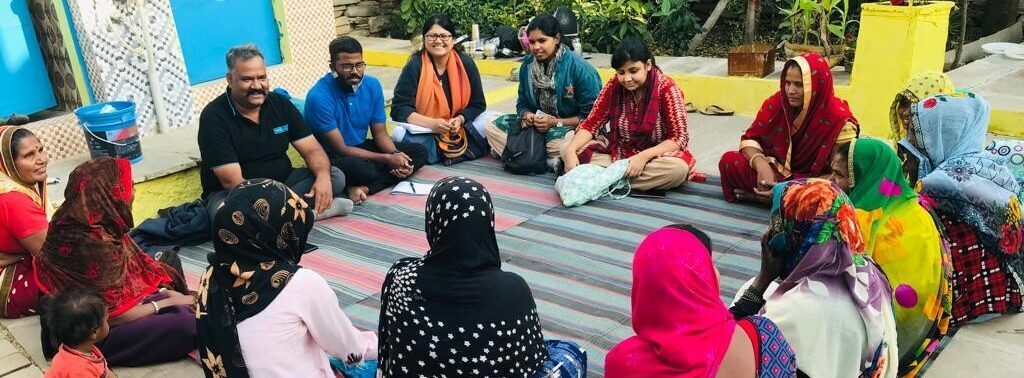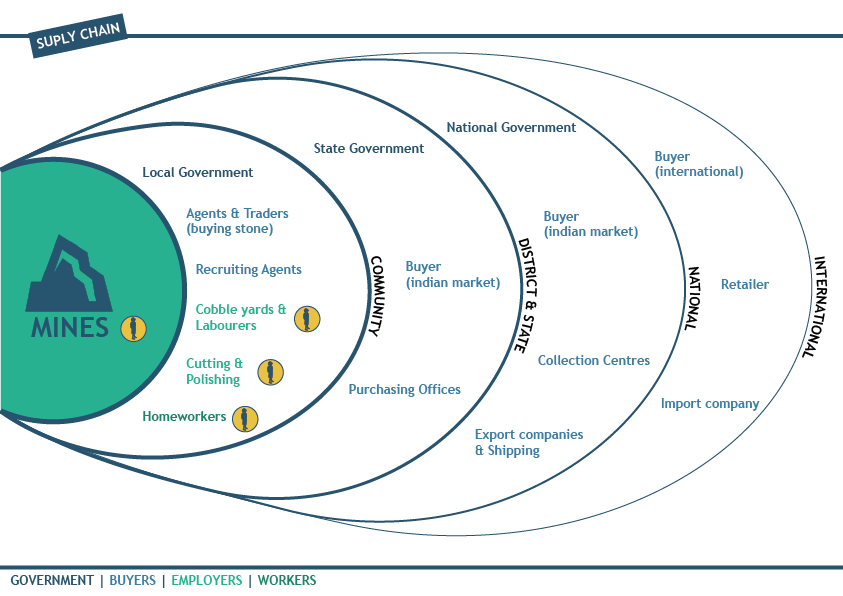Strategies for change
To work towards a social norm against all forms of child labour among all stakeholders – communities, governments and businesses – WNCB implements an combined approach of strategies: an area-based approach that goes hand in hand with a supply chain approach. With an area-based approach, we target all forms of child labour in a specific area, tackle root causes, and strengthen local child protection systems. With regard to the supply chain approach, we hold companies accountable for performing due diligence (in line with the international guidelines for responsible business conduct) throughout the natural stone supply chain. This therefore includes processing factories, quarries, and homes in which sandstone cobbles are cut.
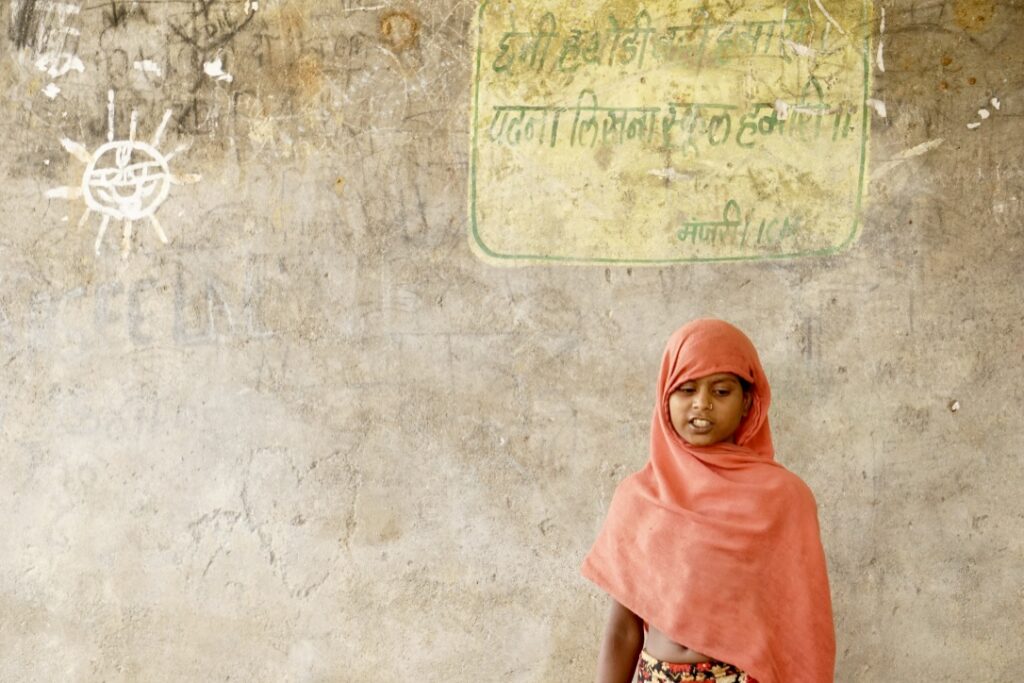

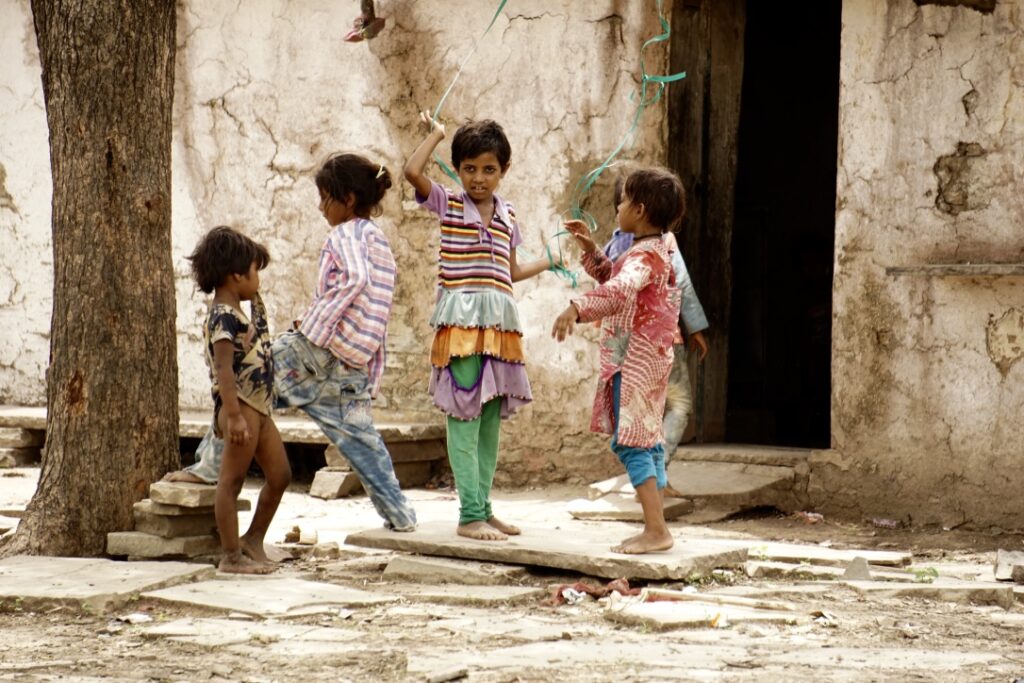
Area-based approach
The area-based approach means concentrating on protecting the rights of all children in an area, addressing the root causes of child labour, strengthening local child protection systems, and working towards the norm that that no child should work and every child should be in school. No distinction is made between different forms of child labour; every child is entitled to education. The focus is not on child labour in specific sectors or the worst forms of child labour, but on all children who work and do not go to school.
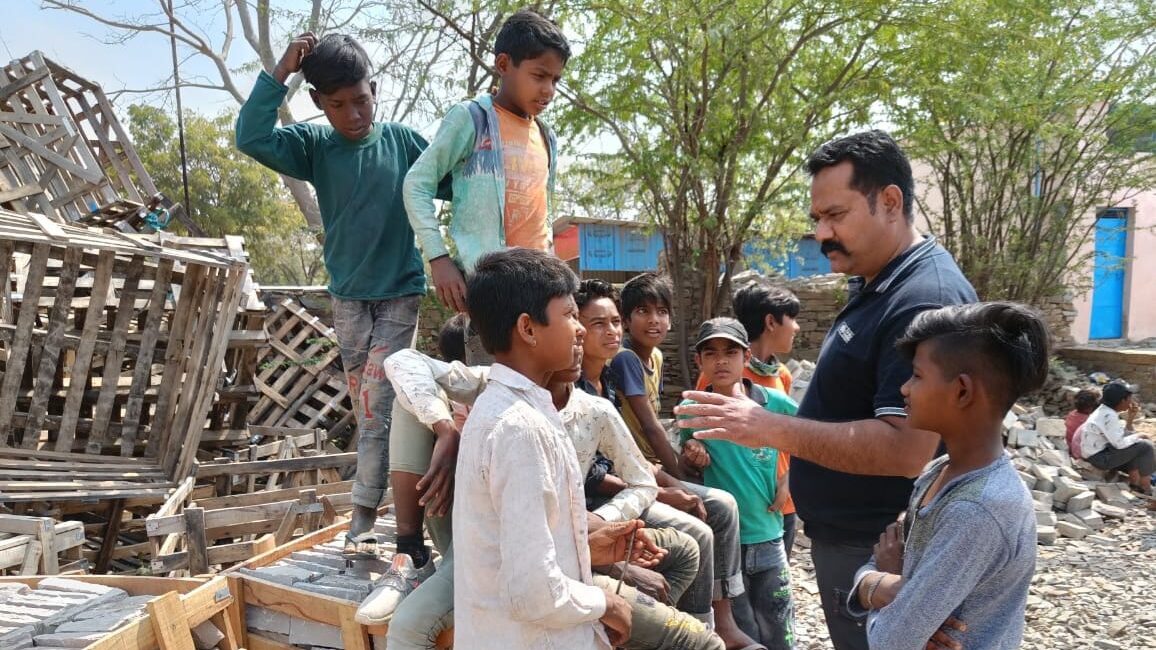

Teachers, local authorities, village leaders, employers, parents and children work together to get children out of work and into school. If everyone takes responsibility, this can be achieved. Activities are initiated within existing community groups, in co-operation with local authorities and employers, to ensure the rights of all children.
The area-based approach is crucial to supporting and promoting the norm that children should not work and should go to school. Providing access to formal, full-time, quality education for all children is one of the most effective strategies for eradicating child labour.
Read more about working with the area-based approach
Also listen to the WNCB podcast:
‘How the area-based approach is crucial in supporting and promoting the norm that children should not work.’
Supply chain approach
The area-based approach is combined with engaging companies in the supply chain to achieve systematic, planned improvement – the supply chain approach. Businesses have a responsibility to respect human rights. They are crucial to identifying and understanding the labour conditions and risks in their supply chains. Market players are domestic companies (including micro, small and medium-sized businesses), trade or business associations, and multinational corporations.
In working with the supply chain, a focus on labour rights based on international standards such as the ILO treaties, the UN Guiding Principles on Business and Human Rights and the OECD guidelines is key. Business action and related interventions that focus on what happens in the workplace and in communities are needed to work towards sustainable change. Co-operation on all levels is also required, to offer children an alternative to work in the form of quality education and/or decent youth employment.
The WNCB programme also uses the Children’s Rights and Business Principles as guidelines. The Children’s Rights and Business Principles aim to bring about change in sectors with a high incidence of child labour. For global supply chains, business approaches are needed that address the rights and specific vulnerabilities of children and youth, and are aimed at improving children’s health, welfare and development.
Combining strategies in Budhpura
Manjari applies these two strategies in the Budhpura region to eliminate child labour in the natural stone sector and to improve labour conditions for adults.
Implementing the area-based approach in Budhpura
In addressing the challenges and issues in Budhpura at community level, Manjari’s area-based approach is based on establishing Child Labour Free Zones. Manjari began by working with children and women and expanded its work from there.
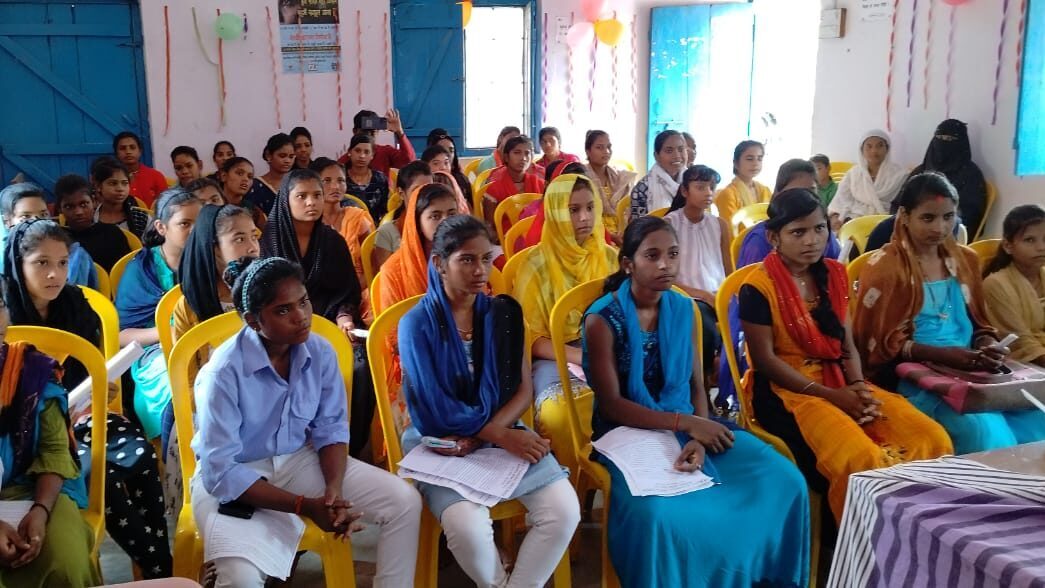
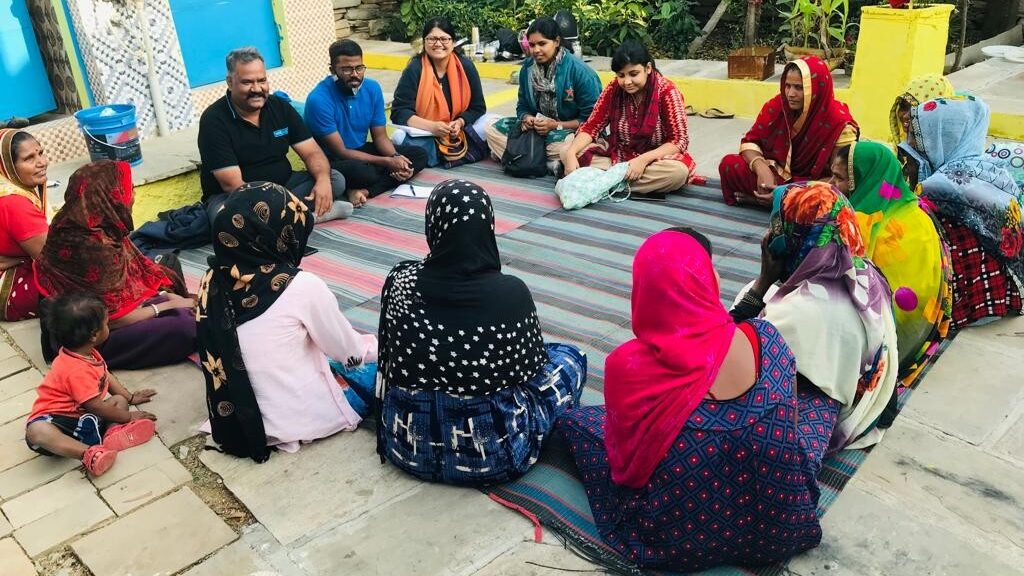
The story of Manjari shows how, over the past decade, Manjari has worked with various successful strategies that fit into the context of Budhpura. Manjari’s implementation of the Child Labour Free Zone approach involved a range of activities at community level: mobilising community and strengthening community organisations; financial support, linking families to government schemes, and supporting the most vulnerable families with alternative livelihoods; improving quality education by supporting formal schools and interventions outside schools (library, tuition centres, sports activities) and training in active learning methodologies, and; mainstreaming children into formal schools.
Manjari’s successful interventions and work are shared, through ARAVALI, with the government of Rajasthan with the aim of upscaling at regional level. The community libraries, for example, have been endorsed by the government, and ARAVALI has now been given responsibility for setting up libraries across the state. Additionally, the Child Friendly Village Guidelines, developed by ARAVALI based on the successes achieved by Manjari, have been adopted by the government of Rajasthan for replication in the state on a broader scale.
Manjari is also working with adult workers in the sandstone sector to raise awareness and knowledge of power dynamics in the supply chain and throughout the sector as a whole.

Read the story of Manjari
“When we started to work and understand the situation in Budhpura, we concluded that we require a lot of patience. A significant part of the village population came from outside the area and the business context (the stone sector) has a heavy influence over people’s life and livelihoods.”
Implementing the supply chain approach in Budhpura
The business actors in Budhpura are home workers, cobble traders, transporters, yard and mine owners, and export companies that often also own processing factories in Bundi and Kota districts. There is a cobble-traders’ association in Budhpura and a mine owners association at district level. At the international level, multinational companies, traders, retailers, and improvement initiatives are part of the supply chain. Sandstone cobbles are used for public paving in Europe, so municipalities are an important end user in the supply chain.
Manjari engages in dialogue with the local business sector in Budhpura, with support from ARAVALI. At state level in Rajasthan, ARAVALI brings together all stakeholders in the sandstone supply chain under the Sustainability Forum for Natural Stone (SFNS). Through their co-operation with Arisa in the Netherlands, they also engage with international companies. Arisa participates in TruStone, conducts research into working conditions in the sandstone industry, and advocates for implementing human rights due diligence in sandstone supply chains.
Making conditions in the lower tiers visible to import and export companies
As part of the strategy for building trust and working with businesses, Manjari positions itself as a partner for businesses and offers access to workers and their families at grassroots level. Along with ARAVALI and Arisa, Manjari helps businesses to increase insight into the business operations and rights violations in the upstream sandstone supply chains.
In my opinion, workers are also stakeholders of business. So they have a legitimate position that their voice must be heard. Manish Singh, Manjari
Multi-stakeholder dialogue in Rajasthan
Arisa is a member of TruStone, a multi-stakeholder initiative of the natural stone sector in Flanders and the Netherlands that was formed to tackle violations of human rights and labour rights, as well as prevent harm to the environment. Arisa brings the reality of Budhpura to the table of the TruStone member companies that source sandstone from Rajasthan. Within TruStone, a series of dialogues was held with supplying companies, buying companies (members of TruStone) and stakeholders in Rajasthan, including Manjari and ARAVALI. In these dialogue sessions, challenges, good practices and lessons learned were shared in order to develop a responsible and sustainable sandstone sector in Rajasthan.
At state level in Rajasthan, ARAVALI brings together stakeholders in the sandstone supply chain under SFNS (Sustainability Forum on Natural Stone). SFNS is a multi-stakeholder forum that works to raise awareness and build capacity among diverse supply chain actors in the natural stone sector in Rajasthan. SFNS collaborates with various stakeholders to create an inclusive solution, shares knowledge and promotes cross-learning among different stakeholders to scale up good practices, and builds a dialogue among different stakeholders. See here for more information on SFNS.
Involve change agents in working with businesses
Manjari and ARAVALI are working with change agents within the Budhpura business community who are open to dialogue and willing to take steps to bring about change.
Link with the international supply chain
Arisa is a member of TruStone, a multi-stakeholder initiative of the natural stone sector in Flanders and the Netherlands to tackle violations of human rights and labour rights, as well as prevent harm to the environment. Arisa brings the reality of Budhpura to the table of the TruStone member companies that source sandstone from Rajasthan. Within TruStone, a series of dialogues was held with supplying companies, buying companies (members of TruStone) and stakeholders in Rajasthan, including Manjari and ARAVALI. In these dialogue sessions, challenges, good practices and lessons learned were shared in order to develop a responsible and sustainable sandstone sector in Rajasthan.
Expanding the combined approaches to other stone mining areas in Rajasthan
ARAVALI and Manjari are working with a fellow programme, in which fellows in other geographical areas in the Rajasthan stone sector (marble, limestone, granite) are trained to implement the area-based approach in their own contexts and to work with the stone business sector. The fellows are based at Non-Governmental Organisations/Community Based Organisations, a women’s credit bank, and a trade union.
There is linking and learning between the fellows and Manjari’s field staff, for example on organising workers in the natural stone sector and empowering women workers. Fellows are also supported to bring their insights and experiences in working conditions in Rajasthan’s stone-mining areas to the multi-stakeholder forum SFNS.

